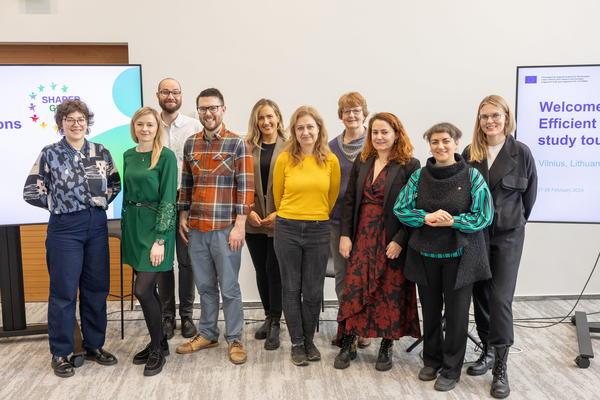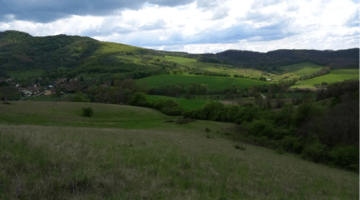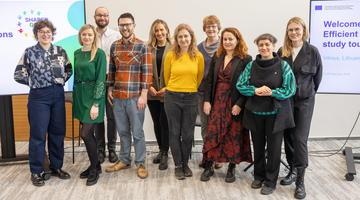New report: Local ‘Knowledge Networks’ can help deliver Europe’s building renovation goals
A new report from the SHARED GREEN DEAL project shows how local “Knowledge Networks” can make a real difference in driving Europe’s push for energy-efficient building renovations — essentially by connecting citizens with experts through trusted, community-based approaches.
The findings are based on social experiments carried out in four locations — Nógrád County (Hungary), Mayo County (Ireland), Zaragoza (Spain), and Vilnius (Lithuania) — where residents, builders, advisors, and local organisations came together to share hands-on knowledge about renovation. The activities were undertaken by local partners with support from Anglia Ruskin University, Aalborg University and WECF Germany.
At its core, the idea of Knowledge Networks is based on a simple insight with solid scientific underpinnings: renovation isn’t just a technical job — it’s also a social process. The approach focuses on the real-life challenges people face when trying to make their homes more energy efficient, and puts learning from each other at the centre. It creates space for ongoing, practical exchange between citizens, experts, and community groups.
In practice, this meant experimenting with everything from bus tours of homes being renovated to informal meetups and community events. These gave people the chance to ask questions, grow their confidence, and learn from others who had already started their renovation journey. For many, it was the first time they had access to trusted, local advice.
As one participant - who had been considering installing solar panels - explained, the effect of meeting real people - who happened to also be experts - was immediate:
“It was actually at that meeting where [expert] presented and he gave us the facts and figures, and that’s what really swayed me from sitting on the fence to going for it,” a participant from the local experiment in Mayo County, Ireland said.
Local success with European perspectives
While each site shaped its approach to reflect local housing and social conditions — from rural energy poverty in Hungary to multi-apartment blocks in Lithuania — all four experiments shared a common thread: they helped support abstract policy ambition with local action. And they did so with modest resources by focusing on something too often overlooked in renovation efforts — social connections and practical know-how for regular folks.
By involving people early, through trusted local organisations, the experiments lowered resistance, built confidence, and opened up a space for real discussion between citizens and professionals. This not only helps individuals plan and prioritise renovations — the big idea is that it also makes the rollout smoother, and thus ultimately cheaper.
Rosie Robison, Professor of Social Sustainability at Anglia Ruskin University and coordinator of the SHARED GREEN DEAL project, explains:
"Our local experiments show how insights from the social sciences on the importance of renovation know-how can help increase positive community involvement in green transitions - making it cheaper and faster to implement the climate-friendly actions we need," she says.
The report argues that Knowledge Networks should be part of the policy mix as Europe steps up implementation of the Energy Performance of Buildings Directive and its Renovation Wave Strategy. By linking lived experience with expert guidance, and doing so in a way that builds trust, these networks can help ensure that renovation goals are not only ambitious — but achievable.
Download the full report ‘Bringing together citizens and professionals to develop know-how for energy efficient renovations’ on the website of SHARED GREEN DEAL.
On the website you can also learn more about the local partners and the specific action they took when working with knowledge networks.
Related Green Deal Priorities
Related localities
Related events
Related Resources


CONTACT
For further details please contact co-leads Professor Chris Foulds (chris.foulds@aru.ac.uk) and Professor Rosie Robison (rosie.robison@aru.ac.uk).

This project has received funding from the European Union’s Horizon 2020 research and innovation program under grant agreement No 101036640. The sole responsibility for the content of this website lies with the SHARED GREEN DEAL HAS project and does not necessarily reflect the opinion of the European Union.





